When considering entering the wheat flour business, it is crucial to understand the profitability of the industry. Specifically, the flour mill business profit margin is a key indicator of its economic efficiency. Developing a comprehensive flour mill business plan not only helps to clearly understand the market positioning and goals, but also serves as an important tool to attract investment. Usually, the profit margin in flour mill business is affected by many factors such as raw material costs, market demand fluctuations, and production efficiency. Therefore, in-depth analysis of the impact of these factors on wheat flour business profit is an essential step for anyone who hopes to succeed in this industry. Through careful planning and execution, the profit margin of the flour mill business can be optimized and sustainable.
Although there are many flour mills in the market, the high demand for various types of flour makes it still profitable to start a flour business by establishing small and medium-sized flour mills. Factors affecting the cost of a flour mill are the type of milling technology (roller flour mill, hammer flour mill, pneumatic flour mill, etc.) resulting in different costs, the price of raw materials (wheat, maize, maida, atta chakki, etc.), the scale of operations of the flour mill plant (mini-mills, small flour mills, and large flour mills). Embrace the opportunity to feed nations and reap the rewards of a flourishing flour business.
Start Your Flour Mill Bussiness with PINGLE Now!
Many people are interested in starting a flour mill business. However, they have no idea about the detailed steps and expected costs of setting up a flour mill. And they are curious about how much money a flour mill, say on a small scale, can make in a year. Here, Pingle, a China leading flour mills manufacturer, provides the information you may need, such as a business plan for a wheat flour mill.
If you are interested in starting your own wheat/atta flour mill business, or other grain flour business, like cassava flour milling, please contact us for FREE quotation on both small-scale or large-scale flour mill machinery.
Contact PINGLE for a professional maize milling business plan pdf
In general, there are two types of flour mills: small scale flour mill and large scale flour mill . The choice between small or large scale should be made with due consideration to your specific situation. Below we will analyze small flour mills and large flour mills for your consideration.
First of all, small flour mill machinery requires little capital, but the profit margin is relatively small. It works well in two modes, one charging a certain amount of money for milling and the other for producing flour. Therefore, the small flour mill business is very flexible and you can adjust the production according to the market demand. Also the whole operation is relatively easy and simple and can be used by almost all adults.
Start Your Flour Mills From Small Business Now!
mini atta mill project cost (20TPD)
Through advanced mill technology and highly automatic mill solutions, we can reduce flour mill project cost and ensure you obtain higher profits in the production and operation process.
Innovate flour mill technology, through the development and upgrade of key equipment such as electric or hammer mills, equipped with precise processing control to ensure stable flour quality and meet different flour technology standards.
Committed to sustainable development, our flour machinery adopts environmentally friendly designs to minimize energy consumption, help you achieve sustainable production, and save electricity to the greatest extent.
Success stories speak for themselves, we have provided innovative flour solutions to numerous customers around the world, bringing a reliable reference to your business. Here are some of our construction cases
To improve production efficiency, our equipment can meet the needs of small, medium and large flour mills. Especially in African markets such as Uganda and Kenya, these small flour machinery are very popular. At the same time, the intelligent and automated functions of flour machinery will greatly improve your production speed and efficiency.
Choose a reliable partner. We are a leading company in the field of flour processing, winning the trust of our customers with our excellent R&D capabilities and service levels.
Embark on a journey of entrepreneurship with our Small Business Flour Mills Project. With minimal capital investment, you can tap into the local market’s needs and start reaping the benefits quickly. Our compact and efficient flour milling solutions are designed for easy operation, allowing you to produce high-quality flour with ease. Whether you’re charging for milling services or producing your own branded flour, our machinery adapts to your business model, ensuring flexibility and profitability. Discover the potential of small-scale milling and let us help you make a big impact in your community
Due to the complex flour making process and advanced flour making machinery, a large investment in a large flour mill project is inevitable. However, due to the high demand for wheat flour around the world, especially in some regions such as India, Egypt, Algeria, Italy, Brazil, etc., the profits are substantial in most cases. Large flour mills allow for automated and continuous flour production, from raw material to packaged flour.
PINGLE fully automatic flour mill project cost
Elevate your ambitions with our Large Scale Flour Mill Project. Designed for entrepreneurs ready to dominate the market, these mills are a testament to innovation and efficiency. With our advanced milling technology, you’ll be able to cater to extensive demand and deliver consistent quality. Our large-scale solutions promise not just quantity but quality, setting new standards in the flour production industry. Join the ranks of major players and let our expertise guide you to operational excellence and unparalleled growth.
The cost of a flour mill varies greatly due to different production capacities. If you are setting up a small mill flour mill, the cost will be much cheaper than a medium or large flour mill. Setting up a flour mill can require a lot of capital, so if you don't have enough money but don't want to miss out on a profitable endeavor, you can seek help from a bank loan or just find a reliable partner flour milling business who is passionate about flour mills.
Typically, mini flour mills cost price $2,500 to $3,000. small flour mill plants will cost price $3,500 to $5,000. However, for large flour mills, the cost is certainly high. For example, a large flour mill with automatic wheat mill machinery may cost $19,000 to $1,448,000. However, this price is for reference only and the cost of a specific flour mill will depend on the specific conditions and equipment selection!
How do you start a flour mill? The following will talk about the basic factors that should be considered when deciding to get started.
1. Getting financial support
Any business needs financial support before it can start. How much does it cost to buy a flour mill ? Will you need a loan or just put all your money into this business. For estimating the amount, it is better to have a better understanding of the local market as well as the global market where the flour mill business is profitable.
2. Obtaining a flour milling license
Getting a license from the government or registering your plant with the local government is also important for the success of your flour milling business. Ensuring that every policy and flour production process complies with local rules and regulations is an essential requirement for a flour mill.
3. Finding the right plant location
The right plant location is very important for a flour milling business. The right plant location should have easy access to raw materials and the delivery and transportation of final packaged flour. Once the location is determined, it's time to get out of the flour milling plant's coverage area. In general, a complete flour mill plant layout should include an area for storing raw materials, an area for the flour milling machine, and an area for the flour packing area.
4. Buying a flour mill
When the above conditions are in place, it is time to consider how and where to obtain flour machinery. The selection of a flour mill is closely related to capacity, investment cost, flour making process, raw materials, etc. Therefore, it cannot be done overnight. Therefore, it cannot be done overnight. Time needs to be taken to select the most reliable flour machinery supplier, which helps avoid many unexpected problems in flour mill installation and operation and reduces machinery purchase costs.
5. Operator training and safety education
For most flour mills, flour production should have several operators or workers . Systematic training and safety education for workers and operators is one of the most important elements to start the operation of a flour mill. They must not only be proficient with the equipment and machinery, but also know how to add flour ingredients. Most suppliers of four-mill machinery offer training programs and courses to their customers to help them get into the flour industry quickly and avoid many typical operating mistakes.
6. Flour milling business marketing strategy development
How to get the final produced flour directly to the customer is also a difficult task for the flour mill investor. If the local flour market is not very competitive, then don't worry, the final flour product will sell very well. Some markets such as Nigeria, India, Pakistan, Uganda, Chile, Australia, Algeria, Ethiopia, etc. are very popular to start a flour milling business due to high demand and low competition.
7. Supply chain management:
Develop a robust supply chain management strategy to ensure a stable and reliable supply of corn raw materials. Build relationships with trusted suppliers and explore options for sourcing corn locally to minimize transportation costs and shorten delivery times.
8. Product Diversification:
Consider diversifying your products beyond basic cornmeal to cater to different market segments and consumer preferences. Explore opportunities to produce value-added corn products such as fortified flours, cornmeal blends or specialty flours to expand your market reach and revenue streams. Pingle's equipment can help you produce different types of powder.
9. Sustainable Practices:
Employ sustainable practices in corn milling operations to minimize environmental impact and promote long-term sustainability. Explore options for energy efficiency, waste reduction and water conservation to align your business with environmental stewardship principles and meet the growing demand for sustainable products. Pinle can help you upgrade and maintain your machinery and equipment, create the most efficient production equipment, and reduce waste during grinding.
The cost to start a flour mill factory can vary widely depending on several factors, including the scale of the operation, the location, the equipment required, and various other expenses. However, a rough estimate for starting a medium-sized flour mill factory could range from $100,000 to $500,000 or more.
Starting a flour mill business can vary significantly in cost depending on various factors. Here are some considerations and factors that can affect the cost: Scale of Operation; Location; Equipment and Machinery; Raw Material; Labor Costs; Utilities; Regulatory Compliance and Licensing; Marketing and Distribution; Maintenance and Repairs; Contingency Fund
Different types of machines are used in flour mill businesses. Conduct a market research to list some of the best machine options, narrow down the list and choose the most affordable and effective machine for your flour mill business. You can choose PINGLE MACHINERY as it is the most effective and affordable flour milling option in China. It is suitable for large scale businesses. Many wholesaler suppliers sell this type of machine at lower prices.Start a flour mill business Steps
A flour mill can be profitable if there's demand for flour, operations are efficient, raw material costs are managed, and the product is of high quality. Success depends on factors like market demand, production efficiency, raw material costs, operational expenses, branding, competition, regulatory compliance, and economic conditions. By analyzing the market, controlling costs, maintaining quality, and adapting to changes, a flour mill can achieve profitability.
The amount of land needed for a flour mill depends on its scale and capacity. For a small to medium-sized mill, around 1-2 acres may be sufficient for the mill building, storage silos, parking, and other facilities. However, larger mills or those with additional processing or packaging facilities may require more land. Factors such as zoning regulations, accessibility, and future expansion plans should also be considered when determining land requirements.
To open a flour mill in India:
Research and Planning: Study the India market demand, competition, and regulatory requirements. Develop a flour mill business plan outlining your objectives, target market, production capacity, and financial projections.
Legal Requirements: Register your business entity and obtain necessary licenses and permits, including food processing license, business registration, and environmental clearances.
Location and Infrastructure: Choose a suitable location with access to raw materials(wheat, maize, atta chakki ), transportation, and utilities. Set up the mill infrastructure, including flour milling equipment, storage facilities, and packaging area.
Supply Chain Management: Establish relationships with grain suppliers and distributors. Ensure a steady supply of quality raw materials and efficient distribution of finished products.
Operations and Quality Control: Implement efficient milling processes, quality control measures, and hygiene standards to produce high-quality flour products.
Marketing and Sales: Develop a marketing strategy to promote your brand and products. Explore various distribution channels, including wholesalers, retailers, and direct sales to consumers.
Compliance and Regulations: Adhere to food safety regulations, labor laws, taxation requirements, and other legal obligations. Maintain compliance with regulatory standards to ensure product quality and consumer safety.
Continuous Improvement: Monitor flourr market trends, customer feedback, and operational efficiency. Continuously improve your products, processes, and business strategies to remain competitive and profitable.
By following these steps and staying focused on quality, compliance, and customer satisfaction, you can successfully open and run a flour mill business in India.
conclusion
When you are planning to start a flour mill business by setting up a flour mill, you can refer to the above tips and steps for a complete and viable flour business plan. Pingle can provide customized flour mill business plans to start a flour mill business easily. If you still have a lot of confusion, please contact us for more detailed information, we have built many flour mill projects around the world. We are sure that some of our experience is just what you are looking for!
Pingle's flour machines for business have gained popularity in various countries like Zambia, India, Uganda, Kenya, and Nigeria. We offer comprehensive services, including on-site installation, commissioning, and after-sales support. Whether you're starting a maize mill business or expanding an existing one, our maize milling business plan pdf provides valuable guidance. Contact us today to kickstart your flour mill project and benefit from our expertise and assistance.
Imagine the pride and satisfaction of owning a flour mill that not only meets the local demand for staple foods but also stands as a pillar of economic development in your community. With PINGLE’s custom flour mill business plan, you’re not just investing in machinery; you’re crafting a legacy. Our tailored solutions are designed to fit your unique market needs, ensuring that your mill is a beacon of productivity and prosperity. Envision your brand of flour on every shelf, the name PINGLE synonymous with quality and reliability. This is more than a business—it’s a chance to make a lasting impact. Let’s build your dream mill together.
When considering the flour mill business, it is essential to develop a robust small scale flour mill business plan that addresses all aspects of operations, from procurement of raw materials to market distribution. This plan should emphasize cost control measures, which are crucial for enhancing the profit margin in flour mill business. For instance, investing in advanced milling technology such as roller mills or pneumatic mills can significantly improve efficiency and reduce waste, directly impacting the flour mill profit margin. Furthermore, understanding the scale of operations—whether mini-mills, small flour mills, or large flour mills—is vital for tailoring the business plan to fit specific market needs. By embracing continuous improvement and adhering to compliance and regulations, a well-executed flour mill business plan ensures not only operational excellence but also financial success.
The profitability of a flour mill business hinges on its ability to adapt to market trends and maintain high standards of product quality and customer satisfaction. The flour mill profit margin can be optimized through strategic choices, such as selecting the appropriate type of milling technology and efficiently managing the price of raw materials like wheat, maize, maida, and atta chakki. Small-scale operators have the advantage of flexibility, allowing them to adjust production according to market demand and keep costs low. With Pingle's support, entrepreneurs can start their small scale flour mill business with confidence, leveraging comprehensive services including on-site installation, commissioning, and after-sales support. Ultimately, by focusing on quality, compliance, and customer satisfaction, a flour mill can become a cornerstone of economic development, providing staple foods while generating substantial profits.
VIEW MORE PINGLE Provided Flour Mill Business Plan Project
VIEW MORE PINGLE Flour Mill Plant
VIEW MORE PINGLE Flour Mill SERVICE
Take the decisive step today and begin your journey in the Flour Mill Business with PINGLE’s state-of-the-art flour milling machinery. Our dedicated team is ready to support you every step of the way, from initial consultation to after-sales service. Don’t let this opportunity pass you by. Contact us now to receive your personalized Flour Mill business plan and discover how PINGLE can be the cornerstone of your success. Your future as a leader in the flour market is just one email away. Act now and transform your flour-milling vision into reality.
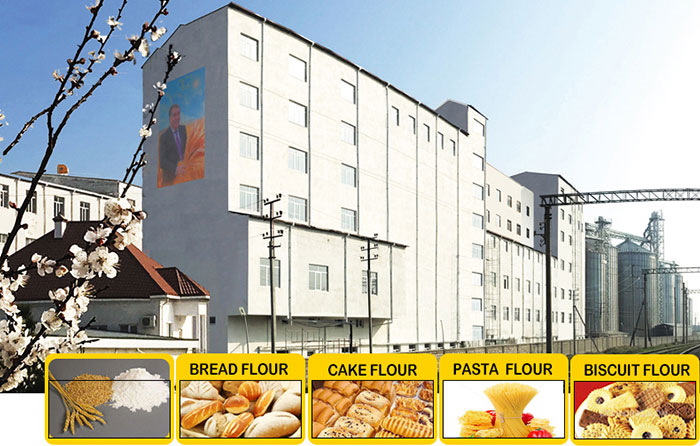 Multi-story Flour Milling Plant
Multi-story Flour Milling Plant
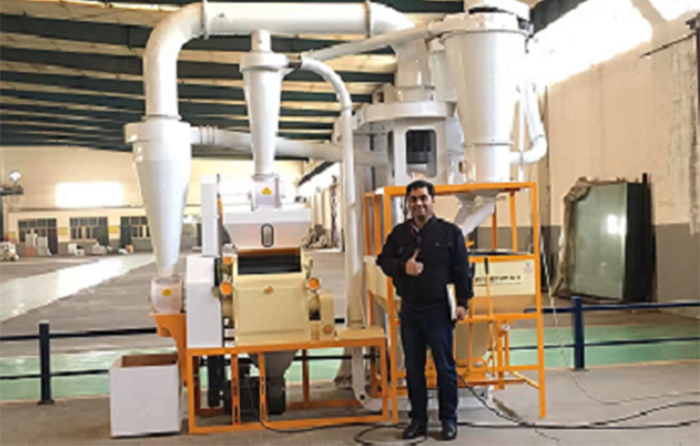 Fully Automatic Atta Chakki Plant
Fully Automatic Atta Chakki Plant
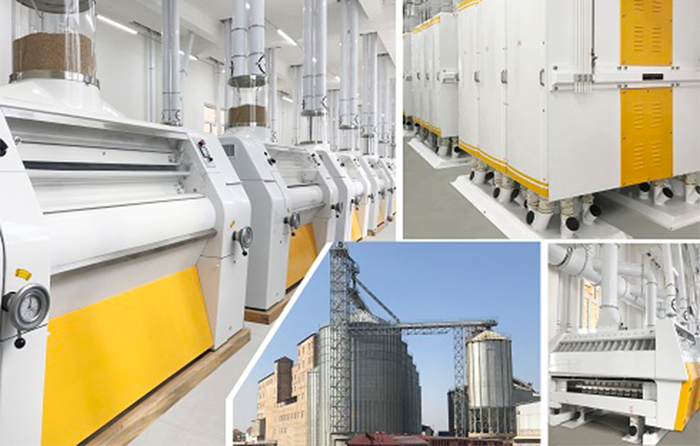 Fully Automatic Flour Mill Plant Price
Fully Automatic Flour Mill Plant Price
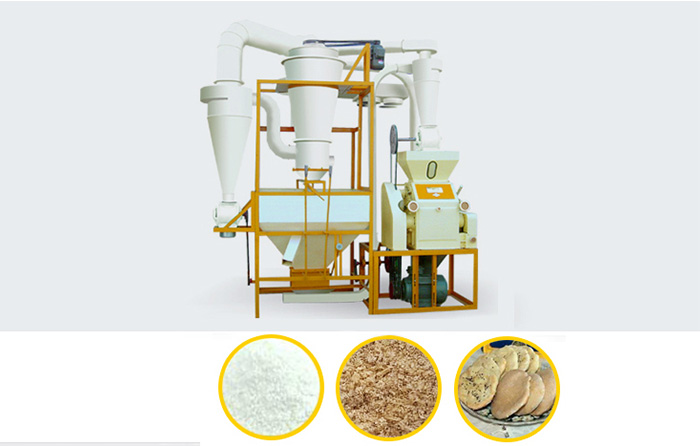 Family Workshop Wheat Flour Milling Plant
Family Workshop Wheat Flour Milling Plant
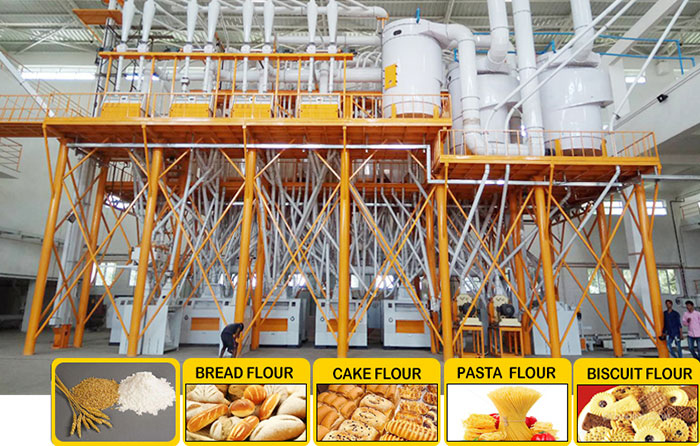 Steel Structure Wheat Flour Milling Plant
Steel Structure Wheat Flour Milling Plant
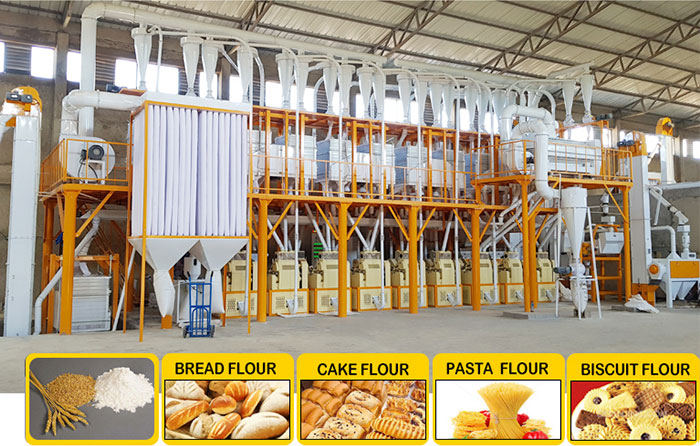 Compact Structure Wheat Flour Milling Plant
Compact Structure Wheat Flour Milling Plant
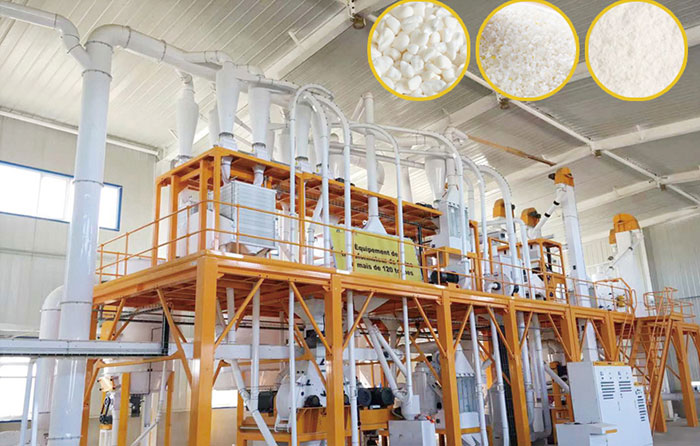 Maize Flour Milling Machine with Hammer Crusher
Maize Flour Milling Machine with Hammer Crusher
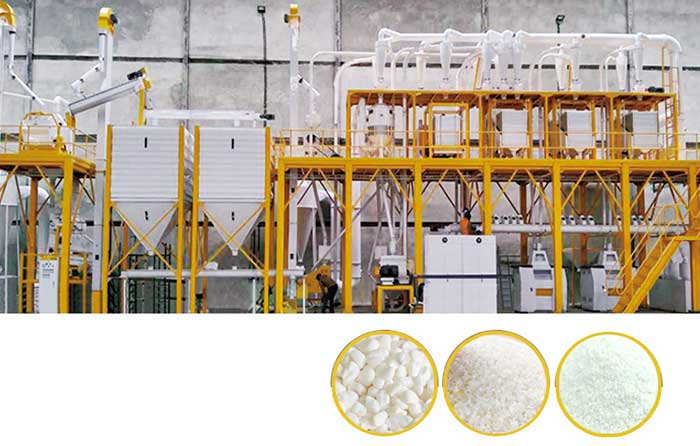 Complete Set of Maize Flour Milling Plant(Machine)
Complete Set of Maize Flour Milling Plant(Machine)
Copyright © Hebei Pingle Grain Technology Intelligent Equipment Co.ltd. All Rights Reserved | Sitemap | Technical Support: 